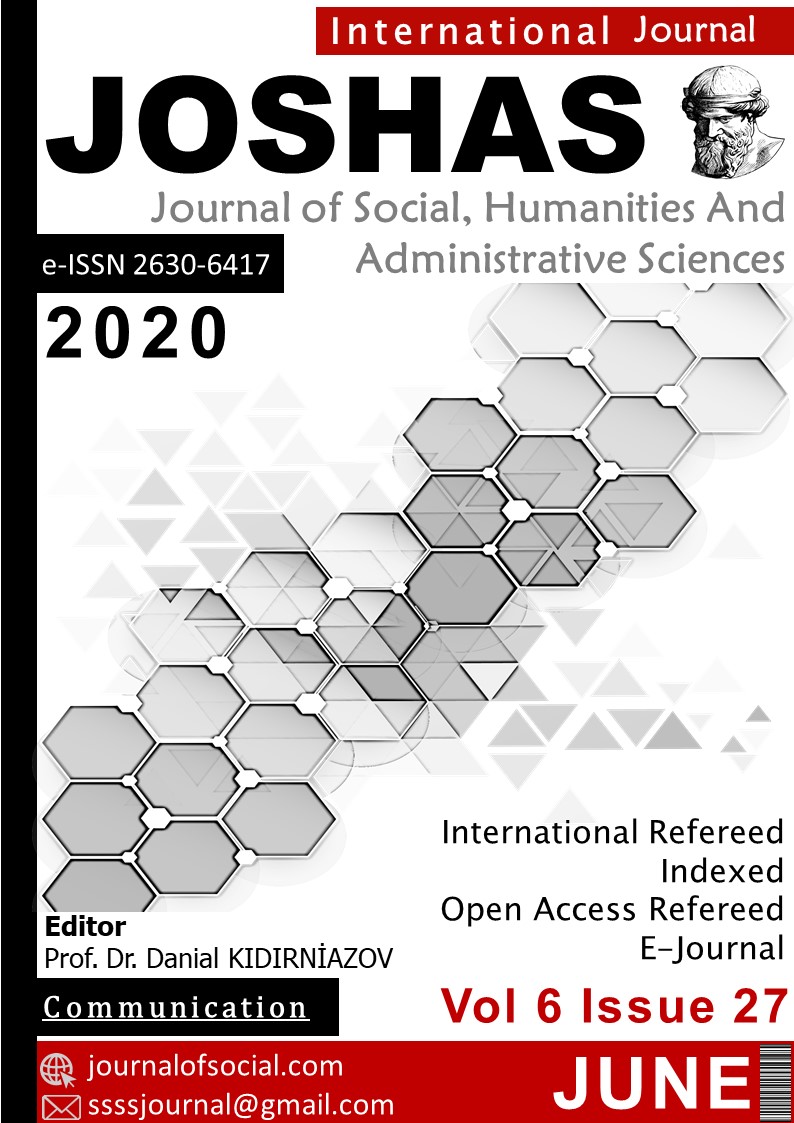Author :
Abstract
Futbol şüphesiz en evrensel en sansasyonel ve en popüler spor branşı konumundadır. Bu özellikler futbolun kendi iç dinamizmini ortaya koymuş sosyal ve finansal yönden kitlesel bir çığır açmıştır. Futbolun sosyolojik etkilerinin bir sonucu olan finansal gelişim günümüzde futbol endüstrisinin en önemli ve en büyük halkası niteliğindedir. Popülarite ve küresel zirve ekonomi, futbol takımlarını gün geçtikçe transfere ve yenilenmeye mecbur bırakmış durumdadır. Bu çalışmada CIES Futbol Gözlem evi Aylık Raporları ve 2018 yılı FIFA Küresel Transfer Piyasası Raporu baz alınarak Türkiye ve Dünya’da transfer yaklaşımları, etnik kimliklerin transferdeki konumları, takım görünümleri ve transfer ekonomisi incelenmiştir. Bu doğrultuda Örneklem grubu oluşturan 2.120 kulüpte oyuncuların ortalama 5,7’sinin etnik kimlik olarak yabancı oyuncu statüsünde olduğu tespit edilmiştir. Bu yabancı oyuncuların en çok temsil edildiği kimliği ise Brezilyalı oyuncular oluşturmaktadır. Toplamda 1202 Brezilyalı oyuncu futbol hayatlarını başka ülkelerde sürdürmektedirler. Ayrıca yıllara göre transfer yüzdesinde bir artış olduğu ve bu artışın 2017 yılında %44,8 olduğu tespit edilmiştir. 2017 yılında en çok yeni transfer yapan ülke ise %57,6 ile Portekiz olmuştur. Transferdeki bu artış hiç şüphesiz altyapı oyuncularının takımlardaki şans bulma oranlarını da olumsuz yönde etkilemiştir. Yıllara Göre Alt yapıda yetişen oyuncuların kendi takımlarında şans bulma oranları 2017 yılında %18,5’e gerilemiştir. Gerilemenin en fazla olduğu ülke ise %6,8 ile Türkiye’dir. Ayrıca yabancı oyuncu artışının en fazla olduğu ülke de % 65,6 ile Türkiye’dir. Bu transferlere yapılan harcamalar ise yıllara göre artış göstermiş ve 2017 yılında tüm dünyada transfere 6.37 milyar dolar harcama yapılmıştır. En fazla transfer harcamasını ise 5.591,4 milyar dolar ile UEFA ‘ya bağlı ülkeler yapmakla beraber bu ülkeler arasında ilk sırada 1.643,6 milyar dolar ile İngiltere yer almıştır. Transferden en çok karı elde eden ülke ise 860,8 milyon dolar ile İspanya’dır. Sonuç olarak futbol ekonomisinin hızla büyüyerek devam edeceği, harcama boyutlarındaki büyük oransal artışlar ile, futbol kulüplerinde ekonomik sıkıntıların yaşanılabileceği söyleyebiliriz.
Keywords
Abstract
Football is undoubtedly the most universal, most sensational and most popular sports branch. These features have opened up a massive break through in the social and financial direction of football, which has revealed it sown inner dynamism. Financial development, which is a result of the sociological effects of football, is now considered to be the most important and largest of the football industry. Its popularity and global peak economy have forced football teams to transfer and renew themself day by day. In this study, the CIES Football Observatory Monthly Report and the 2018 FIFA Global Transfer Market Report based on Turkey and transfer approaches in the world, located in the transfer of ethnic identity, the team views transfer and economy were examined. In this direction, 2.120 clubs forming the sample group have found that on average 5.7 of the players are in foreign player status as ethnic identity. The most representative of these foreign players are the Brazilian players. Turkey is the country where most of the 65.6% increase in foreign players. Expenditures made by the transfers have increased over the years, and by 2017, 6.37 billion dollars have beens pent transponder all over the world. The highest transfer expenditure was $ 5,861.4 billion, followed by UEFA-affiliated countries, with Britain at $ 1,643.6 billion in the first place among these countries. The country with the most profit from the transfer is Spain with $ 860.8 million. As a result of the seexaminations, the developmental stage of the football finance economy will continue to grow rapidly, and the large proportional increases in the expenditure dimensions have led to the conclusion that the infrastructure training and the loss of the player production vision could lead to the loss of the economic turbulence in the football clubs.
Keywords
- Boniface, P.(2007). Futbol ve küreselleşme (Çev.: İsmail Yerguz), NTV Yayınları, İstanbul
- Boniface, P.(2007). Futbol ve küreselleşme (Çev.: İsmail Yerguz), NTV Yayınları, İstanbul
- Güngör, A. (2014). ‘’Futbol endüstrisinde sportif başarı ile finansal performans arasındaki ilişkinin analizi ve Türkiye uygulaması’’, İstanbul Üniversitesi Sosyal Bilimler Dergisi, 1, 16-36.
- http 1: https://www.fifatms.com/wp-content/uploads/dlm_uploads/2018/01/GTM_2018.pdf (Erişim Tarihi:29/04/2018 15:38 )
- http 2: http://www.football-observatory.com/ (Erişim Tarihi: 15/11/2017 18:47)
- http 3: http://www.football-observatory.com/IMG/sites/mr/mr25/en/ (Erişim Tarihi:29/04/2018 22:23)http 4: http://www.football-observatory.com/IMG/sites/mr/mr29/en/ (Erişim Tarihi:29/04/2018 22:28)
- http 6: http://www.football-observatory.com/IMG/sites/mr/mr32/en/ (Erişim Tarihi:30/04/2018 29/04/2018 16:45)
- http 8: http://www.football-observatory.com/IMG/sites/mr/mr34/en/ (Erişim Tarihi: 12/05/2018 23:01)





